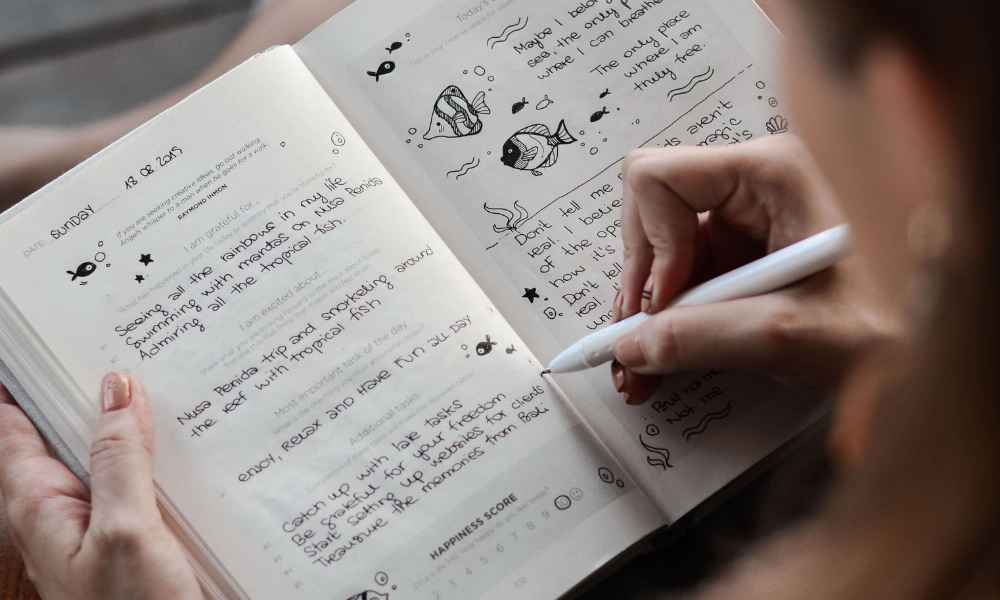Last Updated on March 28, 2025


In challenging times like these, so many of us are experiencing significant stress. If life is like a box of chocolates, we can certainly face unforeseen challenges. These challenges – such as losing a job, dealing with an illness, experiencing a traumatic event, or a significant life change – can be stressful, add up, and wear on us over time. This is why stress management activities are essential for your mental health.
Where Does Stress Come From?

Stress is how the brain and body respond to any demand. During times of acute stress, we experience a biological response, and our bodies release stress hormones, cortisol, and adrenaline. The “fight-or-flight” response is triggered by the release of these hormones, which help to prepare your body to either stay and deal with a threat or flee to safety.
Short-lived feelings of stress are a regular part of everyday life. Stress symptoms can affect your body, your mood, and your behavior. Common bodily manifestations of acute stress include headache, muscle tension, and gastrointestinal upset. Stressed people may have alterations in moods, such as irritability, anxiety, sadness, or restlessness. Some individuals can also experience changes in behavior, such as overeating or undereating, angry outbursts, or social withdrawal.
In short, even when we choose to ignore it, stress is almost always disruptive to our day-to-day living. While everyone experiences stress from time to time, the body works in constant overdrive when stress becomes chronic. Chronic stress affects the whole body and can have severe physical or psychological effects, such as heart disease, diabetes, hypertension, depression, and cancer. Therefore, it’s important to find ways to manage your stress so that stress does not manage you!
Here are ten stress management activities that will help you to reduce stress:
Breathe Consciously

Did you know that on average a person takes about 16 breaths per minute? That means that we take about 960 breaths in an hour and 23,040 breaths per day. Despite the regularity and frequency of breathing, most of us don’t pay much attention to our breathing. However, healthy breathing is fundamental to good health and well-being. By consciously managing your breathing, you can manage your stress. Slow, conscious, and deep breathing helps to calm your central nervous system and cardiovascular systems. In addition, deep belly breathing may also improve attention, mood, and levels of cortisol. So try this:
- Assume a comfortable seated position
- Inhale through your nose for five seconds, filling first your belly and then your chest
- Hold for five seconds
- Exhale through your mouth for five seconds
- Repeat 3 – 5 times
Dance

Dancing and other forms of exercise raise the production of your brain’s feel-good neurotransmitters called endorphins. I recommend doing any type of movement that you enjoy daily. However, dancing can be particularly exhilarating and fun, as it offers an outlet for people to express who they are through music, movement, or perhaps even costumes. So put on your favorite playlist and let loose!
Take a Warm Bath

When you are stressed, the muscles of your body contract. Taking a warm bath can relieve muscle tension. Submerging yourself in warm water can be both calming and reinvigorating, as it increases blood flow to your skin. Submergence in water can also reduce pain and inflammation. So run a bath, turn on some calming music, and enjoy a sensory slowing down.
Stress Bake

When people feel stressed or anxious, they often look for distractions. Baking can be a very positive distraction, as it engages the senses, especially smell, touch, taste, and of course, visualizing the result. Baking also requires concentration. Following recipes offers a sense of structure and routine, which can help alleviate stress. So can you visualize those chocolate chip cookies or a loaf of freshly baked bread? Make time to bake, and it will!
Doodle

You don’t need to have any art skills to just let your pen, pencil, or crayon make its way around a page of the paper. Drawing freely helps to get you out of your head. Research suggests that the repetitive and rhythmic motions of free drawing can activate the relaxation response and be a great stress reliever. There are also cognitive and creative benefits of doodling, so burst out your pen and paper and give it a try!
Read a Good Book

Reading a good book is one of the best stress management activities. Reading has been found to decrease blood pressure, lower heart rate, and reduce stress to significant degrees. It also calms the mind and relaxes the body. So pick up a novel you’ve been wanting to read and get started now!
Keep a Stress Diary

Keeping a Stress Diary can help you to become more aware of situations that cause you stress. You will want to record in the diary regularly to get the most benefit. When you are stressed out, make a note in your diary of the time, place, people, and situation. Record the symptoms you experienced, such as nausea, raised pulse rate, or sweaty palms. Finally, report how well you handled the stressful event: did your reaction improve the situation, or did it make things worse?
You can use your Stress Diary to understand your stress triggers and gradually learn to better handle or eliminate situations that cause you stress.
Walk in Nature

Research in the scientific field of ecotherapy has shown a strong connection between time spent in nature and reduced stress, anxiety, and depression. Interacting with natural spaces has several therapeutic benefits. Calming nature sounds can lower the stress hormone, cortisol, which calms the body’s fight-or-flight response. The visual aspects of nature, such as trees and foliage, help to distract your mind from negative thinking and can also have a calming effect.
Garden

Planting a garden outdoors can be a great way to reconnect with nature and beautify your environment. Key stress relief benefits of gardening include spending time outdoors, being creative, and engaging in some physical activity. Your garden can also serve as a place for meditation, contemplation, and relaxation, which may offer significant relief from stress.
Play a Game

There are lots of fun stress-relieving games.
Bubble wrap popping is a favorite game for many people – just press the bubbles with your fingers and make them explode. This helps you reduce stress by reducing destructive emotions.
Do you remember play dough? This popular childhood material provides a wonderful sensory experience but can also be a great stress reliever. Kneading, rolling, flattening, or stretching the play dough can reduce feelings of stress, anxiety, and worry.
Board games like Pictionary, Cranium, and Trivial Pursuit, tap into both intellect and creativity and are a good way to reduce stress while enjoying some family time.
In conclusion, while all of us experience stress, there are many healthy ways to manage it. In the words of the great novelist Hermann Hesse, “Within you, there is a stillness and a sanctuary to which you can retreat at any time and be yourself.” Let us know which of these stress management activities has worked for you or if there are others you recommend!
Here are a few hand-picked articles for you to read next:
- The Best Self-Care Products for When You Need Some R&R
- How to Start Over in a Relationship: Pressing Reset
- How to Be a More Positive Person in Times of Uncertainty
What are the 5 stress management techniques?
One technique you can use is guided meditation. Guided meditation is an excellent way to distract yourself from the stress of day-to-day life.
Second, you can practice deep breathing exercises.
Maintaining physical exercise and good nutrition is also a great technique.
Social media time can be related to your stress, try limiting it.
Finally, connect with close friends and family.
What are the 3 keys to managing stress?
3 keys to managing stress include sleeping, having weekly “recharge” time, and getting daily breaks.
What are the 4cs of stress management?
Based on the 4C’s framework, which measures key components of mental toughness, the first C’s stand for Control, Commitment, Challenge, and Confidence.
What are the various factors that cause stress?
Feeling under lots of pressure.
Facing big changes in your life.
Being in constant worrisome.
Not having much or any control over the outcome of a situation.
Having responsibilities that you find overwhelming.
Not having enough work, activities, or change in your life.
Experiencing discrimination, hate, or abuse.
Julie Rosenberg, MD is a global healthcare leader who is passionate about promoting good health and wellness worldwide. Julie believes that each of us is our own best healthcare provider. In an effort to find ways to support people in adopting a conscious lifestyle, Julie has devoted the last 16 years to the in-depth study and practice of yoga, meditation, and mindfulness. While trained in Western medicine, these Eastern principles and practices now inform her thinking, her leadership style, and her work. Recognizing that chronic stress and burnout are on the rise with the relentless pace of business today, Julie works with senior leaders and teams to help them achieve their highest state of well-being and become more effective in their organizations. She is the author of two best-selling books: "Beyond the Mat: Achieve Focus, Presence, and Enlightened Leadership Through the Principles and Practice of Yoga" and "Be True: A Personal Guide to Becoming Your Most Authentic Self."
- Julie Rosenberghttps://successiblelife.com/author/dr-julie-rosenberg-physician-executive/
- Julie Rosenberghttps://successiblelife.com/author/dr-julie-rosenberg-physician-executive/
- Julie Rosenberghttps://successiblelife.com/author/dr-julie-rosenberg-physician-executive/
- Julie Rosenberghttps://successiblelife.com/author/dr-julie-rosenberg-physician-executive/

